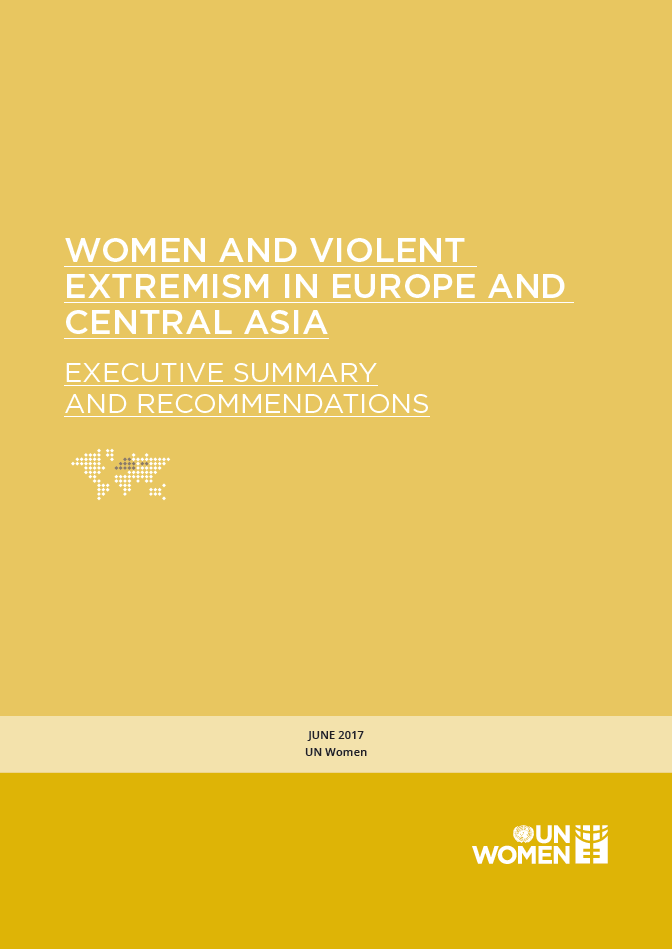
Women and Violent Extremism in Europe and Central Asia

In the Western Balkans and Central Asia violent extremism, and measures being implemented to prevent and counter it, have had nefarious effects on women. Women can be victims and supporters, preventers and perpetrators. This as recognized by UN Security Council resolution 2242 (2015) and has been noted in other international documents. Yet to date there has been limited research on the drivers of radicalization for women and the impact of counter-terrorism strategies on women’s human rights and women’s organizations in the Western Balkans and Central Asia. This series aims to address this gap with an Executive Summary and Recommendation document, reports on the roles of women in Kyrgyzstan and on the roles of women in Tajikistan, and fortcoming reports from the Western Balkans. The reports were drafted based on field research to determine how violence extremism effects women, and the degree to which national strategies, programs and initiatives to counter and prevent terrorism integrate gender perspectives. The reports provide recommendation on how to develop more gender responsive measures to prevent and counter violent extremism.